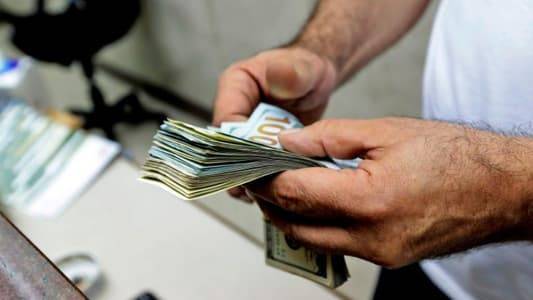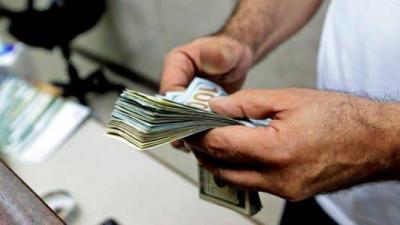Banking risk expert Dr. Mohammad Fahlili calls for revitalizing the Lebanese economy and believes that the imperative path for this is the stability of the banking sector and the funds of depositors. Fahlili tells "Al-Markazia": "The current talk about restructuring banks and/or restoring order to the financial sector, inspired by recent events in the Keserwan coast (Kfarhabab and Jounieh), illustrates the mistakes in approaching solutions to the financial crisis. In Lebanon, approximately 800 mm of precipitation falls annually, equating to 8,200 million cubic meters. This is a blessing from the Creator for Lebanon. It is certain that it would turn into a devastating and fatal curse if it all fell in one night!"
He asks, "Why the concern about rainfall rates?" He answers: "Because there is a significant similarity to the situation of depositors' money in banks regarding deposits and withdrawals. If all billions of depositors were deposited in one day, banks would be unable to handle it and could incur significant losses from receiving such an influx of cash in one day. The same occurs if all withdrawal requests were made in one day. Banks would not be able to meet these requests. And if, miraculously, banks could accommodate these withdrawals, it would cause a sharp and sudden increase in the money supply which would translate into inflationary pressures that severely impact purchasing power."
He adds: "Here lies the 'big lie' being discussed in the financial recovery plan or the government's approach to solving the financial crisis in Lebanon. The plan does not resemble recovery and stems from a flawed reading of the crisis in Lebanon. There is a financial crisis that has accumulated due to mistakes made over the course of 30 years. This crisis, due to its mismanagement at many junctures and deadlines, has caused multiple crises and left significant repercussions on the banking sector and depositors' funds."
He sees that "any solution leading to:
- A demand for the withdrawal of all deposits at once (October 2019).
- The state not repaying its debt at once (March 2020) and the subsequent repercussions and proposed solutions...
- Not paying banks' deposits at the central bank at once.
- Erasing depositors' funds at once.
- Paying depositors' funds at once.
All resemble a year's worth of rainfall falling in a single day; it would be fatal for Lebanon's commercial institutions and for the Lebanese citizen." He states: "What is needed is not ringing speeches, empty promises, and impossible solutions. It is indeed possible to revive the Lebanese economy, and the imperative path for that is the safety of the banking sector and the funds of depositors. This means one thing: reviving the economy is about reliving the relationship between banks and depositors, and here is where all solutions should be focused."
The focus should be on:
- The existence of sustainable banking institutions capable of serving the Lebanese economy. A capable banking sector (regardless of the number of banks) is the imperative path for any economic recovery.
- Providing resources to address banks that are unable to continue in order to avoid further negative repercussions on the citizens depositing in these failing institutions.
- Restoring trust between banks and depositors so that depositors feel secure about their funds "wherever they are," and can access them to finance consumption bills.
- The state's attention to public finances, revenues, and expenditures is a precondition for restructuring and scheduling all public debt, redistributing the state's obligations on a new timeline that reflects its repayment capacity.
- Focusing the interests of the power components on the approval and implementation of serious and structural reforms to renew trust in the authority.




